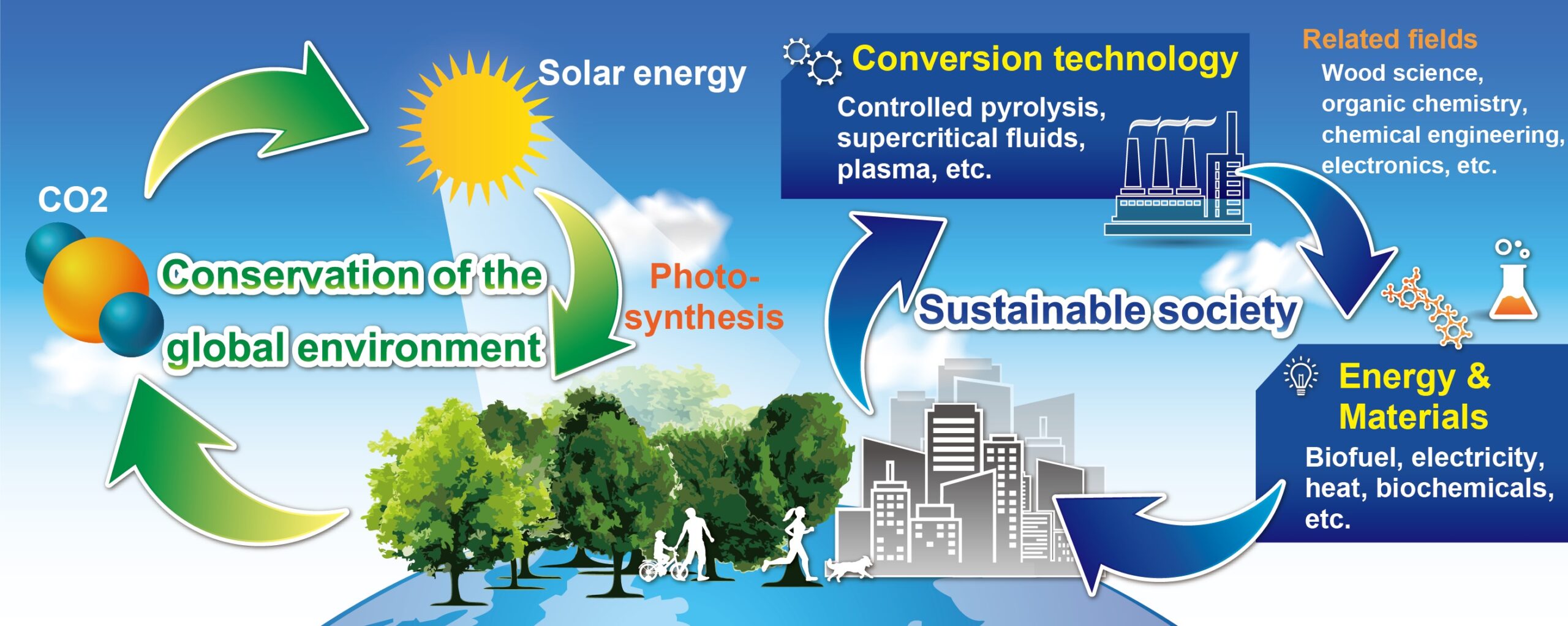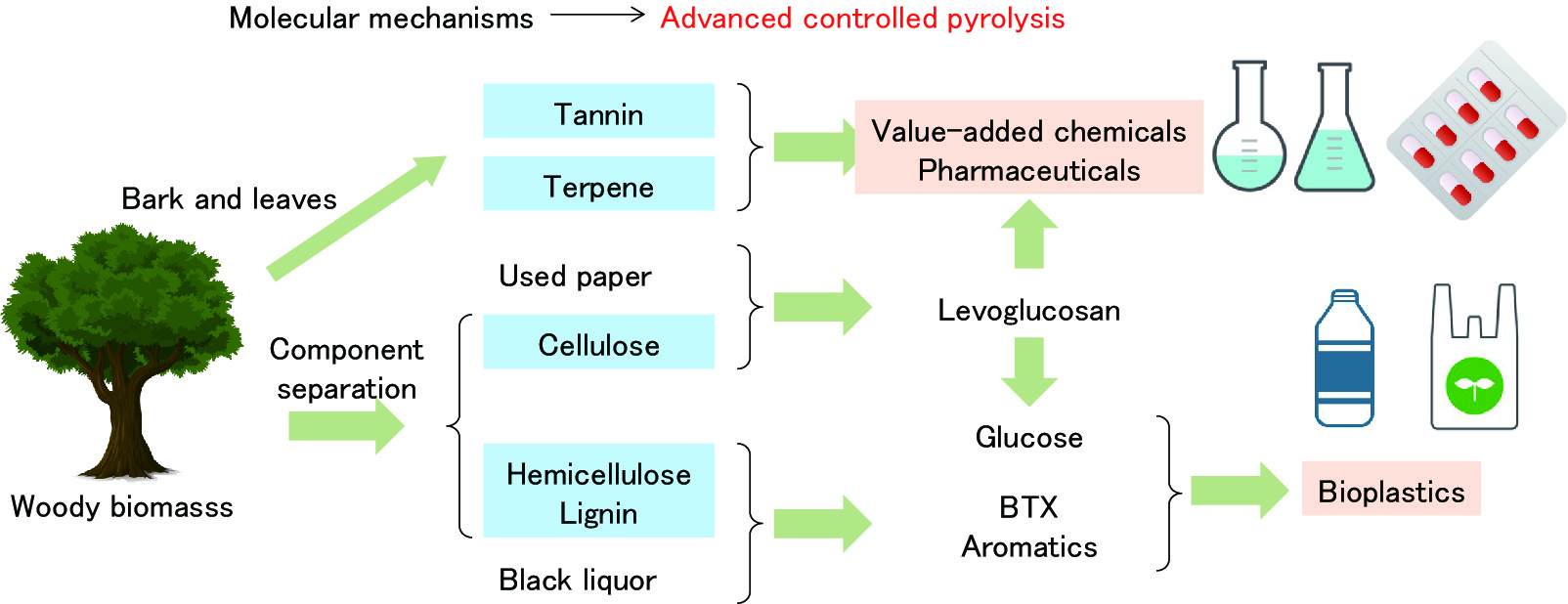The amount of CO2 that forests fix in one year is close to 10% of the amount of CO2 in the atmosphere. This process stores solar energy in the form of chemical energy, which is four to five times the world’s primary energy demand. Our laboratory aims to develop efficient ways to utilize forest resources to mitigate fossil resource depletion and global warming. We are also in charge of the Department of Forest Biomaterials Science, Faculty of Agriculture. Therefore, our research covers a variety of topics from the scientific backgrounds of wood science, organic chemistry, chemical engineering, electrical engineering and social sciences. In particular, the laboratory focuses on molecular mechanisms and control of wood pyrolysis/gasification, biomass conversion in supercritical fluids, and plasma treatment.

Bioenergy
The laboratory research deals with the efficient production of biofuels such as bioethanol, biodiesel and biohydrogen. Currently, these biofuels are mainly produced from edible biomass resources such as starch, sugar and vegetable oils. However, in order to dramatically promote the introduction of bioenergy, it is important to establish the bioenergy utilization system based on non-edible woody biomass. There is a huge amount of woody biomass in our society. We aim to propose new bioenergy production processes for wood, by using controlled pyrolysis/gasification, treatment in supercritical fluids and plasma treatment.

Biochemicals
In order to mitigate the fossil resource depletion and global warming, it is also important to substitute petroleum-based chemicals/plastics by biomass-based materials. We are studying the saccharification of woody biomass by pyrolysis and supercritical water treatment in order to obtain various monomers for bioplastic production. Production of aromatic monomers (phenols, BTX, etc.) from lignin is also of interest in this laboratory.

Carbon sequestration using forest resources
Following the adoption of the Paris Agreement, Japan has also declared 2050 carbon neutrality (the goal of reducing anthropogenic greenhouse gas emissions to zero by 2050). In this regard, negative emissions (removal of CO2 from the atmosphere) have rapidly been discussed as a practical issue. Thus, the high CO2 removal capacity of forests has attracted a great deal of attention. We started research on biochar for carbon sequestration in the soil. The productivity of plants is also expected to increase by applying biochar to the soil.



